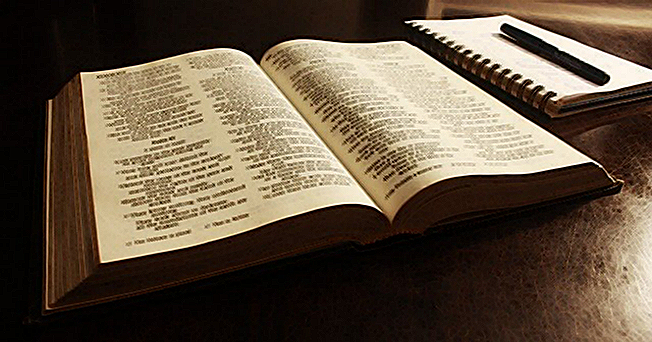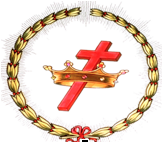American Standard Version with Notes

This is an ongoing process. Please check back for regular updates.
An * beside a note indicates it was taken from a bible student source.
Most scripture links are connected to Biblehub.com.
The following resources were used for research:
Genesis Chapter Two
Verse |
Notes |
| 1 And the heavens and the earth were finished, and all the host of them. | |
2 And on the seventh day God finished his work which he had made; and he rested on the seventh day from all his work which he had made. |
Rested in the Sense of all that He had planned "For Good" He had arranged.*
|
| 3 And God blessed the seventh day, and hallowed it; because that in it he rested from all his work which God had created and made. | "And God blessed the seventh day and hallowed it; because on it he rested from all his work which God in making created." Here God established the order of sevens—an order of time to be observed throughout his plan subsequently. Six periods of equal length were to constitute the working days, and the seventh was the appointed period of rest. To this principle he subjected his own course in the work of creation. No special reference is here made to the seventh day of the week; but rather to the seventh period in any future division of time which his plan might indicate. In conformity with this principle the seventh day was appointed to the Jews under the law as a day of rest, a sabbath. So also their seventh week, seventh year and their culmination in the Jubilee or Sabbath year were on the same principle. And likewise the seventh millennium or seventh thousand-year day is to be a Sabbath, a blessed and hallowed day of rest; for so God appointed in his ordering of time. We have heretofore shown, that the seventh day of God's rest, which began just after man's creation, has continued ever since, and is to continue one thousand years into the future—to the full end of Christ's Millennial reign—in all a seven-thousand-year day. During this long day Jehovah God rests—avoids interference with the operation of the laws under which originally he placed all his earthly creation. (See Heb. 4:3,10; John 5:17.) He rests from or ceases his direct work, in order to let Christ's work of redemption and restitution take its place and [R1610 : page 13] do its work as a part of his divine plan.If thus the seventh day be a period of seven thousand years, it is but reasonable to say that the six days of creation preceding were also periods of seven thousand years each. Thus the entire seven days will be a period of forty-nine thousand years; and the grandly symbolic number fifty, following, speaks of everlasting bliss and perfection in full harmony with the divine plan. R1609 |
4 These are the generations of the heavens and of the earth when they were created, in the day that Jehovah God made earth and heaven. |
|
5 And no plant of the field was yet in the earth, and no herb of the field had yet sprung up; for Jehovah God had not caused it to rain upon the earth: and there was not a man to till the ground; |
|
| 6 but there went up a mist from the earth, and watered the whole face of the ground. | |
| 7 And Jehovah God formed man of the dust of the ground, and breathed into his nostrils the breath of life; and man became a living soul. | |
8 And Jehovah God planted a garden eastward, in Eden; and there he put the man whom he had formed. |
EDEN From an used word according to Strong's. It is widely interpreted to mean pleasure park. It's exact location is unknown. Most researchers believe it was in an elevated and central region, which could provide the sources for the four rivers mention. They have identified it with the highlands of Armenia, West of MT Ararat. This region is 5,000 feet above sea level. It is here that four great rivers emerge, the Euphrates, the Tigris, the Phasis, and the Araxes. This land is still beautiful and fruitful. Another suggesting is where the Euphrates and Tigris form a junction. The region today bears little resemblance to the description of Eden. MAP 2. A territory conquered by Assyria (2 Kings 19:12) # |
| 9 And out of the ground made Jehovah God to grow every tree that is pleasant to the sight, and good for food; the tree of life also in the midst of the garden, and the tree of the knowledge of good and evil. | |
| 10 And a river went out of Eden to water the garden; and from thence it was parted, and became four heads. | The Rivers of Eden may represent mankind going out of Eden because of sin.* |
| 11 The name of the first is Pishon: that is it which compasseth the whole land of Havilah, where there is gold; | PISHON One of the Rivers of Eden. Name meaning unknown. (Abraim Publications gives it as meaning
HAVILAH Strong's, Name meaning unknown. (Abraim Publications gives it as meaning as Circle.
|
| 12 and the gold of that land is good: there is bdellium and the onyx stone. | |
| 13 And the name of the second river is Gihon: the same is it that compasseth the whole land of Cush. | GIHON A Bursting Forth, Strong's 1521 (Gichon) One of the four rivers of Eden thought by some to be the Nile, while others believe it is the Araxes (Arras) or the Kerka. 2) A fountain near Jerusalem on the West where Solomon was annointed King. (1 Kings 1:33) Hezekiah covered it over, and brought its waters by a subterranean channel into the city, (2 Chronicles 32:3). This "fountain" or spring is therefore to be regarded as the "upper water course of Gihon." From this "fountain" a tunnel cut through the ridge which forms the south part of the temple hill conveys the water to the Pool of Siloam, which lies on the opposite side of this ridge at the valley of the son of Hinnom. The length of this tunnel is about 1,750 feet. In 1880 an inscription was accidentally discovered on the wall narrating the history of the excavation. (Illustration from the Library of Congress)
CUSH Name unknown, but most biblical dictionaries translate it as black. The eldest son of Ham, and father of Nimrod, Seba, Havilah, Sabtah, Raamah, and Sabtecha, most of whom settled in Arabia Felix, (Genesis 10:6-8). 2) The term Cush is applied to the countries south of the Israelites. It was the southern limit of Egypt It was the country now known to us as Nubia and Abyssinia (Isaiah 18:1; Zephaniah 3:10.) Egyptian inscriptions call Ethiopia Kesh. The Cushites spread from the Upper Nile to the Euphrates and Tigris. One group, the Phoenicians emigrated to the Mediterranean region. Nimrod was a great Cushite chief. He conquered the Accadians in Mesopotamia, and founded the Chaldean nation. The Hebrews also, in the opinion of many, used Cush and Cushan, (Habakkuk 3:7,) to designate the southern parts of Arabia, and the coast of the Red sea. 3) A Benjamite mentioned only in the title of Psalm 7. He intended to do evil to David.
|
14 And the name of the third river is Hiddekel: that is it which goeth in front of Assyria. And the fourth river is the Euphrates. |
HIDDEKEL Name unknown. Some biblical dictionaries translate it as rapid. It is identified with the Tigris which arises in the mountains of Armenia, 15 miles south of the source of the Euphrates. Its whole length is about 1,150 miles.
ASSYRIA (ASSHUR) 2 names in the Bible From Strong's 804, Ashshuwr, step, going; A son of Shem who went from the land of Shinar and built Nineveh, etc. (Genesis 10:11, 12). (Some translators conclude it was Nimrod who founded Assyria.) Assyria derived its name from Asshur, the second son of Shem (Ge 10:22; 1Ch 1:17) The name Asshur is sometimes used instead of Assyria. (Numbers 24:22, 24; Ezek. 27:23 2. Assyria started out as a small settlement named Assur, "built on a sandstone cliff on the west of the Tigris about 35 kilometers north of its confluence with the lower Zab River" (says The Oxford Companion to the Bible). It became an empire in the 19th century BC, but soon dwindled, reemerged in the 14th century during which it even took control over Babylon to its south, but quickly faded again. Under Tiglath-pileser I (1115-1076 BC) the empire experienced brief and extensive success, but succumbed to the invasion of the Arameans. In 935 BC Assyria began to reconquer its territories lost to Aram, which brought them in range of Canaan, and also created the formidable Neo-Assyrian empire that we hear so much about in the Bible. (From Abriam Publications) Map Assyria EUPHRATES Name of foreign origins, translated as Sweet Water, The Stream, The Great Stream, and The Good and Abiding River. TYPE: represents people together cooperatively* God promised to Abraham's descendants the land from the river of Egypt to the river Euphrates. (Gen 15:18) This occured in the NE under the reign of King David. ((2 Samuel 8:2) The Euphrates is the largest, the longest and by far the most important of the rivers of western Asia. It rises from two chief sources in the Armenian mountains, and flows into the Persian Gulf. The entire course is 1780 miles, and of this distance more than two-thirds (1200 miles) is navigable for boats. The width of the river is greatest at the distance of 700 or 800 miles from its mouth. It there averages 400 yards. The annual inundation of the Euphrates is caused by the melting of the snows in the Armenian highlands. (Taken from Smith's Bible Dictionay) Illustration Illustration II |
| 15 And Jehovah God took the man, and put him into the garden of Eden to dress it and to keep it. | |
| 16 And Jehovah God commanded the man, saying, Of every tree of the garden thou mayest freely eat: | |
| 17 but of the tree of the knowledge of good and evil, thou shalt not eat of it: for in the day that thou eatest thereof thou shalt surely die. | The death sentence could not be increased by any subsequent sins.* |
| 18 And Jehovah God said, It is not good that the man should be alone; I will make him a help meet for him. | |
| 19 And out of the ground Jehovah God formed every beast of the field, and every bird of the heavens; and brought them unto the man (Adam) to see what he would call them: and whatsoever the man called every living creature, that was the name thereof. | ADAM From Strong's 120, Adam, man, mankind; Abrams Publications, From the root דמם (dmm), to begin, to produce. (2 names in the bible) The progenitor and representative head of our race; formed of the dust of the ground, and made a living soul by the Creator's breath. He was the last work of the creation, and received dominion over all that the earth contained. The name has reference to the ground from which he was formed, which is called in Hebrew Adamah . The idea of redness of color seems to be inherent in either word. 2. A city near the Jordan. It is towards the sea of Tiberias. Joshua 3:16.
|
| 20 And the man gave names to all cattle, and to the birds of the heavens, and to every beast of the field; but for man there was not found a help meet for him. | |
| 21 And Jehovah God caused a deep sleep to fall upon the man, and he slept; and he took one of his ribs, and closed up the flesh instead thereof: | |
| 22 and the rib, which Jehovah God had taken from the man, made he a woman, and brought her unto the man. | Eve -Life- a type of the church. The church was fromed from Jesus' wounded side by the deep sleep of death. Eve's standing with God was through Adam as the church's standing with God is through Christ.* |
| 23 And the man said, This is now bone of my bones, and flesh of my flesh: she shall be called Woman, because she was taken out of Man. | |
| 24 Therefore shall a man leave his father and his mother, and shall cleave unto his wife: and they shall be one flesh. | |
| 25 And they were both naked, the man and his wife, and were not ashamed. |

